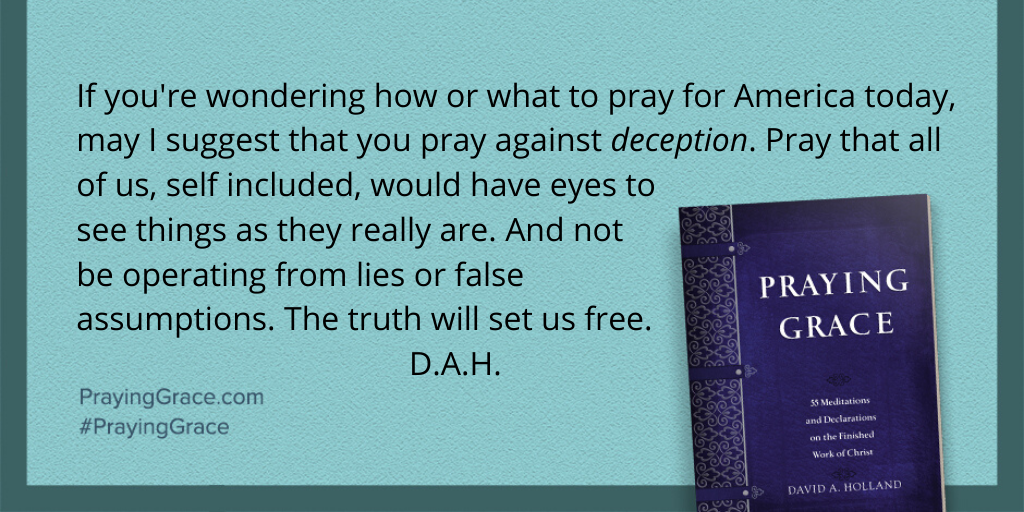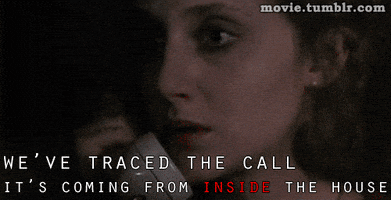Gathering Tonight
May 30, 2020Breathe
June 3, 2020
Eve did the logical thing.
Do I have your attention? Please allow me to explain.

Despite outward appearances, most people operate by an internal logic. Unless swept up in a wave of raw emotion (rage or terror/fight or flight), we’re logical creatures. We build viewpoints and choices logically upon a foundation of assumptions. (Logicians called these premises.)
If your root premise is accurate, sound logic will produce an accurate viewpoint and good choice. But what if your premise is false. Your logic can be perfect . . . flawless and airtight . . . and you’ll still end up with an faulty viewpoint and a bad choice.
For example, suppose I tell you that if you travel east on Centerpark Drive from Highway 26, you’ll eventually see my house on your left. But what if you assume you’re going east on Centerpark (your premise) but you’re actually traveling west? You will, with airtight logic, be looking for my house on the left, but you’ll never see it. Your false premise logically led you to a flawed viewpoint and a bad choice.
Convicing someone that a false premise is true has a name in the Bible. It’s called deception. And that brings us to Eve, which will eventually (I promise) bring us to the current, turbulent state of American society.
Then the Lord God said to the woman, “What is this you have done?” And the woman said, “The serpent deceived me, and I ate.”
Genesis 3:13 (NASB)
In the Genesis narrative, the Serpent sows a couple of false premises into the mind of Eve. The first was that, contrary to what God had said, eating of the tree would not unleash Death upon them and world.
The serpent said to the woman, “You surely will not die!
Genesis 3:4
The second lie was that God didn’t have Eve’s best interests at heart. That, in fact, God was secretly trying to hold her and Adam back with His prohibition of eating from this one particular tree.
For God knows that in the day you eat from it your eyes will be opened, and you will be like God, knowing good and evil.
Genesis 3:5
With two false links embedded in her chain of logic, Eve heads, quite logically, toward a flawed viewpoint and a catastrophic choice . . .
When the woman saw that the tree was good for food, and that it was a delight to the eyes, and that the tree was desirable to make one wise, she took from its fruit and ate; and she gave also to her husband with her, and he ate.
Genesis 3:6
This is the danger and power of deception. Believing a lie doesn’t make you irrational. It makes you firmly, rationally, confidently wrong. It weaponizes your your own mind and God’s gift of free will against you.
But wait, it gets worse.
Deception can not only come from external voices and sources of information. According to Jeremiah, unredeemed and unrenewed, your own heart can deceive you!
“The heart is more deceitful than all else And is desperately sick; Who can understand it?
Jeremiah 17:9 (NASB)
Self-deception is not only possible, it’s common. We lie to ourselves. We tell our selves convenient untruths and rationalize things we know, deep down, aren’t right. In other words . . .

Which brings me to our current national dumpster fire. On every front we have people confidently, loudly, passionately, earnestly, arriving at viewpoints and making choices that seem utterly logical to them. They are utterly convinced of the righteousness of their positions.
Yet many, most perhaps, are built upon a number of false premises. Bad or incomplete information. Deceitful hearts fueling rationalizations. Whispered lies from an invisible sower of doubt, discord, and bitterness.
That is why my exhortation to us as as a church and as believers is to pray against deception—in ourselves, in our neighbors, and in our nation.
In Romans 1:25, Paul describes an entire culture that “exchanged the truth for a lie.” We need to reverse that transaction. We need to replace lies we’ve believed for truth. We need accurate premises.
It’s appropriate to pray against deception. We can pray it for ourselves, just as the Psalmist did . . . “Open the eyes of my heart, Lord!” (Psalm 119:18)
Elisha once prayed for a friend’s eyes to be opened to see things to which he was blind at that moment:
Then Elisha prayed and said, “O Lord, please open his eyes that he may see.” So the Lord opened the eyes of the young man, and he saw, and behold, the mountain was full of horses and chariots of fire all around Elisha.
2 Kings 6:17
And it’s appropriate to pray against deception in others. Paul once prayed something similar for an entire group of people:
I pray that the eyes of your heart may be enlightened, so that you will know what is the hope of His calling, what are the riches of the glory of His inheritance in the saints, and what is the surpassing greatness of His power toward us who believe.
Ephesians 1:18
None of us are totally free from deception. The path of the believer is a progressive path into ever increasing light. (Proverbs 4:18) So we start with ourselves and with the house of God.
Yet there is far more that we can and should do. Jesus left His authority over the earth with us. Indeed His parting words revealed that “all authority in heaven and on earth” was His. That means we have standing to pray against strongholds of deception in our neighbors, our authorities, and our fellow citizens.
The fact is, we have a couple of generations of Americans who–through public education and pop culture–have been feed a steady diet of deception. They were breast-fed on lies and weaned on hatred of Christian civilization. Thus they furiously hack at the very branch on which they’re sitting.
Please know this though . . . When we pray against deception, we’re not praying that others will see things like we see them. We’re simply praying that they, and we, will see things as the really are. The truth.
And you will know the truth, and the truth will set you free.
John 8:32

1 Comment
[…] posted in Uncategorized on June 2, 2020 by David Holland SHARE Tweet Praying Against Deception […]